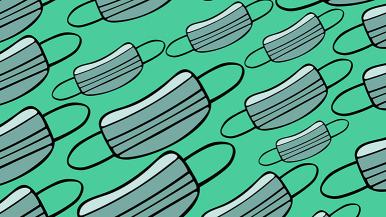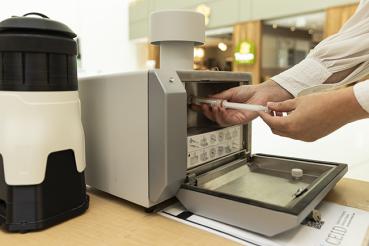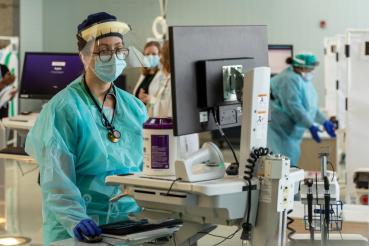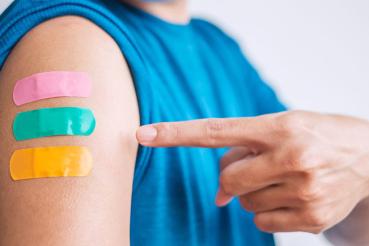While getting vaccinated is still the ideal way to protect yourself and others against COVID-19, the lowly mask remains a potent weapon.
“It’s another layer of protection,” says John Segreti, MD, an infectious disease specialist at Rush University Medical Center. “Vaccination and boosters are still at the top of the pyramid, but masks are right up there and just underneath.”
That’s especially true as new variants leave even the vaccinated more vulnerable to infection, albeit with typically milder symptoms and a vastly lower risk of hospitalization and death.
But as COVID-19 cases surge once again, do we need to rethink which masks we’re wearing to deal with new variants? Maybe not, according to Segreti, who says the standard surgical mask remains your best bet when you’re out and about.
“The main thing is that you want to make sure that the mask fits well and you don't have any gaps,” he says, noting that you may need to adjust the ear loops to ensure it’s snug around your face. “A regular face mask, if worn correctly, that fits properly, will be just as effective against omicron as any other.”
Questions about cloth
Although some experts have suggested ditching the popular cloth masks amid the delta and omicron surge, Segreti says some can still provide protection.
“It depends on the type of cloth mask,” he says. “If it’s three layers, they work very well for source control. So if a person’s infected, they’re less likely to transmit infectious particles if they’re wearing a well-fitting cloth mask that has three layers.”
A cloth mask can also be helpful if worn over a surgical mask to ensure it fits better. “I don't know that the amount of filtering really adds very much, but the main thing is that you want to make sure the mask fits well and you don’t have any gaps.”
Protecting other people
And what about N95s, the pointier, pricier options that were so hard to find early in the pandemic?
“The difficulty with N95s is that they have to be fit-tested by someone who knows how to do it,” he says. “If you don't get the appropriate fit with an N95, it doesn't offer any more protection than a regular mask.”
While masks can keep you from getting sick, they’re also about doing our part to limit the spread of COVID.
“It’s really to protect others,” he says. “It does offer some protection for the person that wears it, but it's mainly to prevent the infected person from spreading it.”




